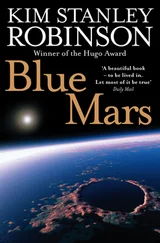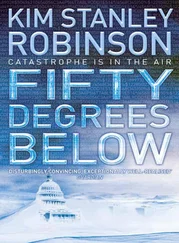“Rig yal ba! Chos min gon pa!”
The others all exclaimed, “Jetsun Gyatso!”
The old man bowed to them.
And then they all cried, “Om!” and filed into the little office space, the brassmen angling their long horns to make it in the door.
A young monk came back out. He took a small rectangular card from the loose sleeve of his robe, pulled some protective backing from it, and affixed it to the window next to the door. Then he retreated inside.
Anna approached the window. The little sign said
EMBASSY OF KHEMBALUNG
An embassy! And from a country she had never heard of. This was a strange place for an embassy, very far from Massachusetts Avenue’s ambassadorial stretch of unlikely architecture, unfamiliar flags, and expensive landscaping; far from Georgetown, Dupont Circle, Adams Morgan, Foggy Bottom, east Capitol Hill, or any of the other likely haunts for locating a respectable embassy. Not just in Arlington, but in the NSF building no less!
Maybe it was a scientific country.
Pleased at the thought, Anna approached closer still.
The young man who had put out the sign reappeared. He had a round face, a shaved head, and a quick little mouth, like Betty Boop’s.
His expressive black eyes met hers. “Can I help you?” he said, in what sounded to her almost like an Indian accent.
“Yes,” Anna said. “I saw your arrival ceremony, and I was wondering where you all come from.”
“Thank you for your interest,” the youth said politely, ducking his head and smiling. “We are from Khembalung.”
“Yes, but …”
“Ah. Our country is an island nation, in the Bay of Bengal, near the mouth of the Ganges.”
“I see,” Anna said, surprised; she had thought they would be from somewhere in the Himalayas. “I hadn’t heard of it.”
“It is not a big island. Nation status has been a recent development, you could say. Only now are we establishing a representation.”
“Good idea. Although, to tell the truth, I’m surprised to see an embassy in here. I didn’t think of this as being the right kind of space.”
“We chose it very carefully,” the young monk said.
They regarded each other.
“Well,” Anna said, “very interesting. Good luck moving in. I’m glad you’re here.”
“Thank you.” Again he nodded.
As Anna turned to go, something caused her to look back. The young monk still stood there in the doorway, looking across at the pizza place, his face marked by a tiny grimace of distress.
Anna recognized the expression. After her older son Nick was born she had shared the care of him with Charlie and some babysitters, and eventually they had taken him to a daycare center in Bethesda, near the Metro. At first Nick had cried furiously whenever she left, which she found excruciating; but then he had seemed to get used to it. And so did she, adjusting as everyone must to the small pains of the daily departure. It was just the way it was.
Then one day she had taken Nick down to the daycare center, and he didn’t cry when she said good-bye, didn’t even seem to care or to notice. But for some reason she had paused to look back in the window of the place, and there on his face she saw a look of unhappy, stoical determination—determination not to cry, determination to get through another long lonely boring day—a look that on the face of a toddler was heartbreaking. It had pierced her like an arrow. She had cried out involuntarily, even started to rush back inside to take him in her arms and comfort him. Then she reconsidered how another good-bye would affect him, and with a horrible wrenching feeling, a sort of despair at all the world, she had left.
Now here was that very same look, on the face of this young man! Anna stopped in her tracks, feeling again that stab from years before. Who knew what had caused these people to come halfway around the world? Who knew what they had left behind?
She walked back over to him.
He saw her coming, composed his features. “Yes?”
“If you want,” she said, “later on, when it’s convenient, I could show you some of the good lunch spots in this neighborhood.”
“Why, thank you,” he said. “That would be most kind.”
“Is there a particular day that would be good?”
“Well—we will be getting hungry today,” he said, and smiled. He had a sweet smile, not unlike Nick’s.
She smiled too, feeling pleased. “I’ll come back at one, if you like.”
“That would be most welcome. Very kind.”
She nodded. “At one, then,” already recalibrating her work schedule for the day. The boxed sandwich could be stored in her office’s little refrigerator.
With that Anna went to the south elevators. Waiting there she was joined by Frank Vanderwal, one of her program officers. They greeted each other, and she said, “Hey, I’ve got an interesting jacket for you.”
He mock-rolled his eyes. “Is there any such thing for a burnt-out case like me?”
“Oh I think so.” She gestured back at the atrium. “Did you see our new neighbor? We lost the travel agency but gained an embassy.”
“An embassy, here?”
“I’m not sure they know much about Washington.”
“Ah.” Frank grinned his crooked grin, very different than the young monk’s sweet smile. “Ambassadors from Shangri-La, eh?” One of the UP arrows lit, and the elevator door under it opened. “Well, we can use them.”
Primates in elevators. People stood in silence looking up at the lit numbers on the display console, as per custom.
Again the experience caused Frank Vanderwal to contemplate the nature of their species, in his usual sociobiologist’s mode. They were mammals, social primates: a kind of hairless chimp. Their bodies, brains, minds, and societies had grown to their current state in East Africa over a period of about two million years, while the climate was shifting and forest was giving way to savannah.
Much was explained by this. Naturally they were distressed to be trapped in a small moving box. No savannah experience could be compared to it. The closest analog might have been crawling into a cave, no doubt behind a shaman carrying a torch, everyone filled with great awe and very possibly under the influence of psychotropic drugs and religious rituals. An earthquake during such a visit to the underworld would be about all the savannah mind could contrive as an explanation for a modern trip in an elevator car. No wonder an uneasy silence reigned; they were in the presence of the sacred. And the last ten thousand years of civilization had not been anywhere near enough time for any evolutionary adaptations to alter these mental reactions. They were still only good at the things they had been good at on the savannah.
Anna Quibler broke the taboo on speech, as people would when all the fellow passengers were cohorts. She said to Frank, continuing her story, “I went over and introduced myself. They’re from an island in the Bay of Bengal.”
“Did they say why they rented the space here?”
“They said they had picked it very carefully.”
“Using what criteria?”
“I didn’t ask. On the face of it, you’d have to say proximity to NSF.”
Frank snorted. “That’s like the joke about the starlet and the Hollywood writer, isn’t it?”
Anna wrinkled her nose at this, surprising Frank; although she was proper, she was not prudish. Then he got it: her disapproval was not at the joke, but at the idea that these new arrivals would be that hapless. She said, “I think they’ll be interesting to have here.”
Homo sapiens is a species that exhibits sexual dimorphism. It’s more than a matter of bodies; the archeological record seemed to Frank to support the notion that the social roles of the two sexes had deviated early on. These differing roles could have led to differing thought processes, such that it would be possible to characterize plausibly the existence of unlike approaches even to ostensibly non-gender-differentiated activities, such as science. So that there could be a male practice of science and a female practice of science, in other words, and these could be substantially different activities.
Читать дальше












